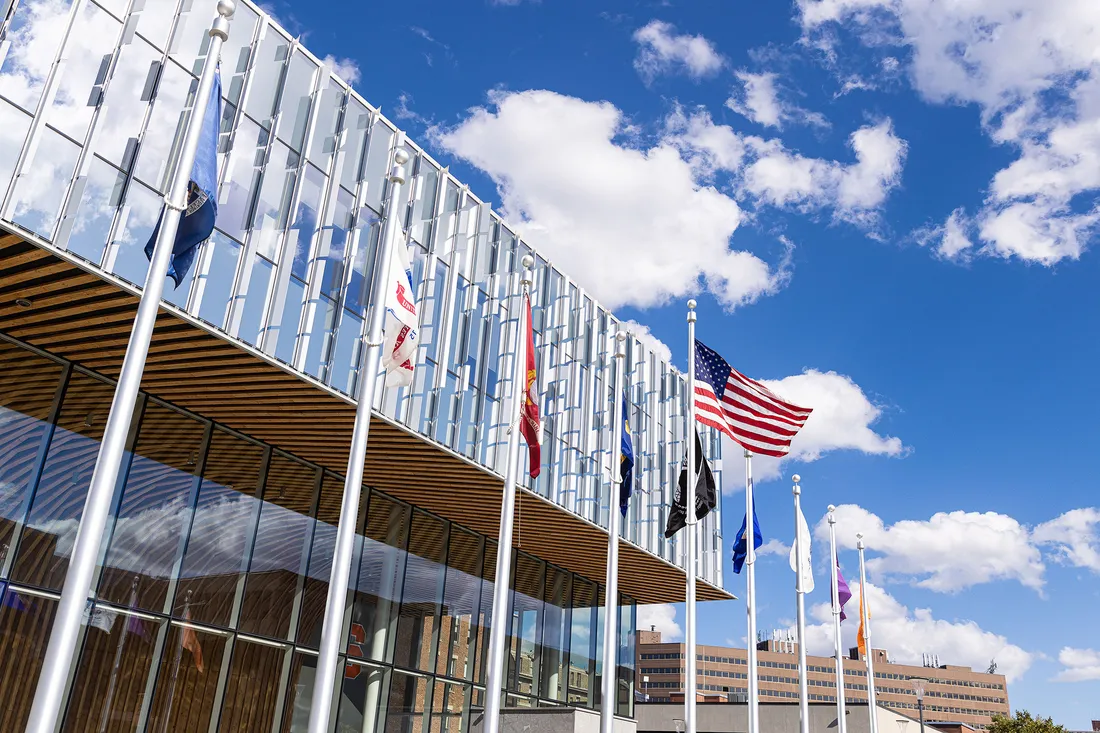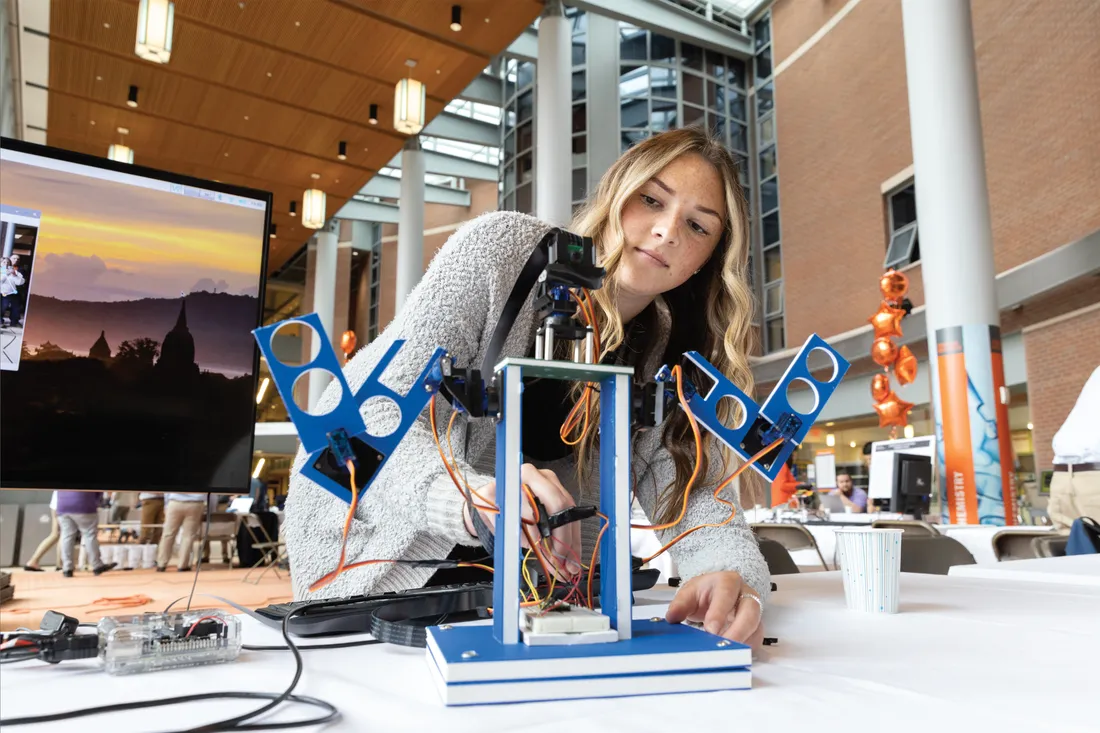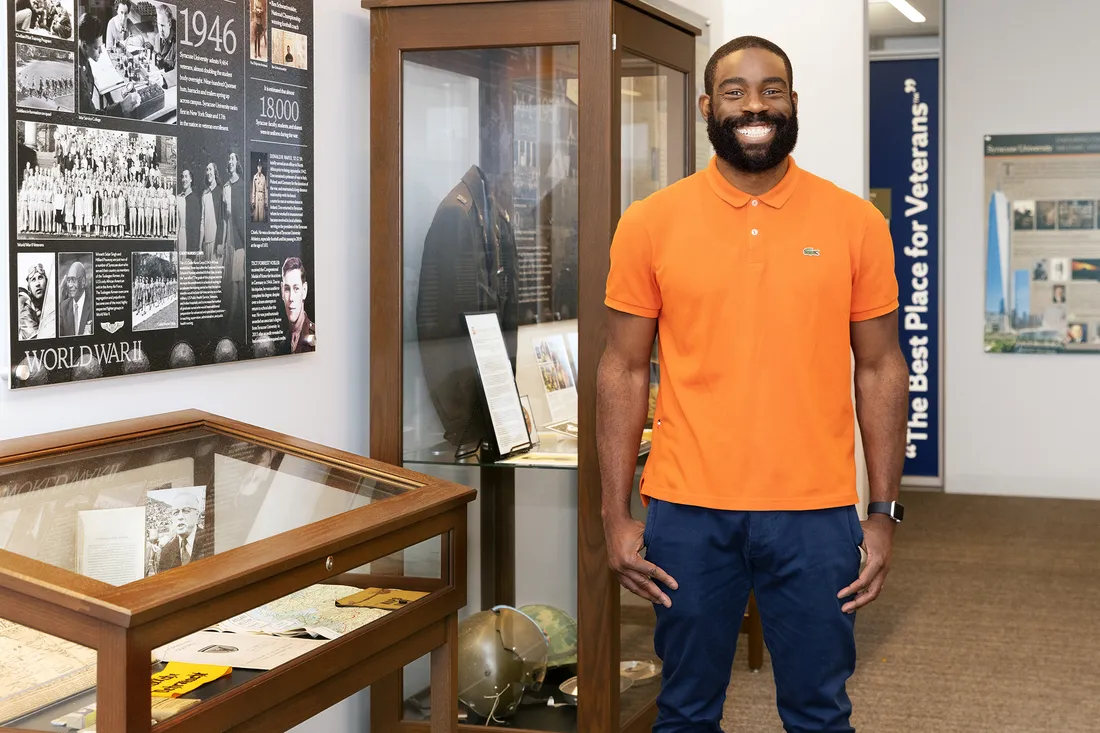
Student veteran Savion Pollard ’25 will be the first Syracuse University student to intern at Micron Technology, where he’ll work as an equipment engineer.
Savion Pollard ’25 grew up feeling like a small fish in a big pond. Originally from Queens, New York, he says he eventually wanted to get out and see more of the world.
So, what’s a city dweller to do when he decides to leave skyscrapers and subways behind in search of discovering himself? For Pollard, the answer was to join the military. After studying accounting in New York City, Pollard enlisted in the U.S. Navy and eventually served as a nuclear engineering electronics technician on a submarine.
Quite the change from life in the Big Apple.
Pollard says he discovered a passion for engineering during his assignment and wanted to learn more about it after he left the Navy. “When I was about a year away from leaving the Navy, I had to decide what I wanted to do next. I wasn’t quite ready to go straight to work as a technician and wanted to gain more knowledge and use the skills that I gained in the military. So, I decided to come to Syracuse University.” Pollard is now majoring in electrical engineering in the College of Engineering and Computer Science, choosing to pursue his studies at Syracuse not only because of the strength of the program but also the University’s career resources and the network of support for veterans.
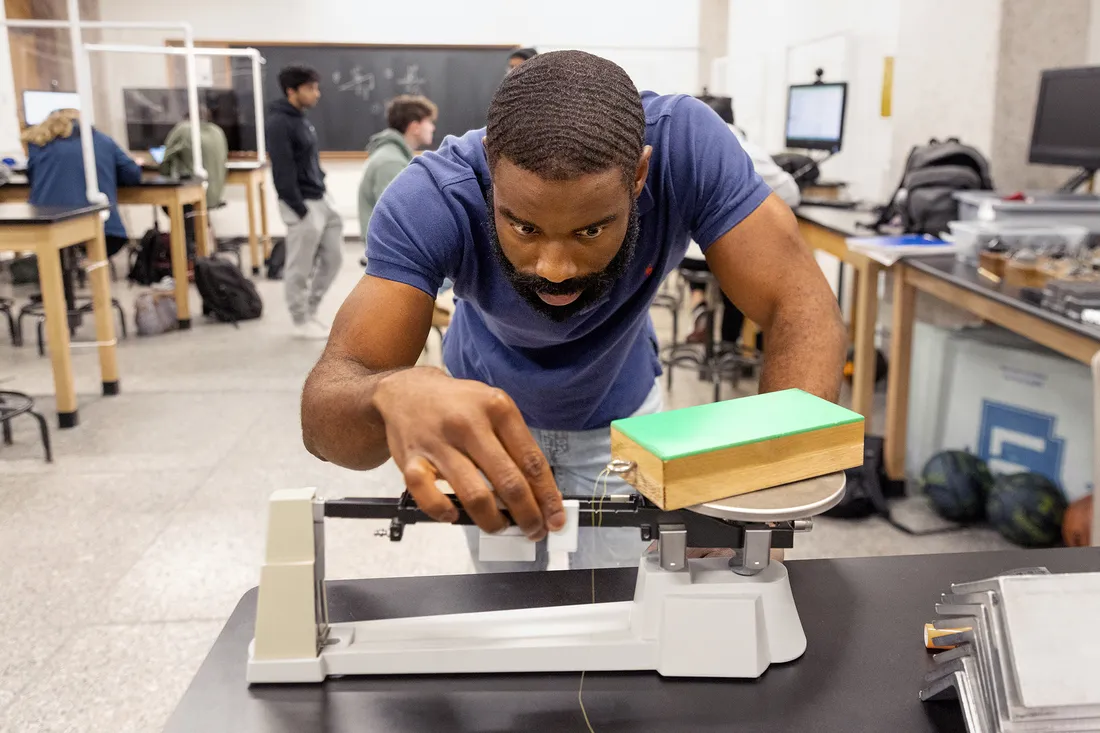
Pollard is studying electrical engineering in the College of Engineering and Computer Science.
Supportive Student Veteran Services
Making the transition to full-time student was difficult for Pollard, but he says the veteran services at Syracuse made it easier. “The resources at Syracuse are great,” Pollard says. Soon after arriving at Syracuse, Pollard made connections with other veterans, members of the military community and representatives from the Office of Veterans and Military Affairs. “I felt a real connection with the people here at Syracuse.”
The services offered to veterans proved to be helpful for Pollard. The Office of Veterans Success helped him with his veterans benefits and the staff in Veterans Career Services helped him strengthen his resume.
Surprising even himself, Pollard made friends with traditional students. “As a veteran, I thought I wouldn’t feel connected to traditional students, but that wasn’t the case. Most of my closest friends at Syracuse are traditional students. It’s amazing to have that connection with students that are many years younger than me, but I can still learn from them, and they can learn from me,” Pollard says.
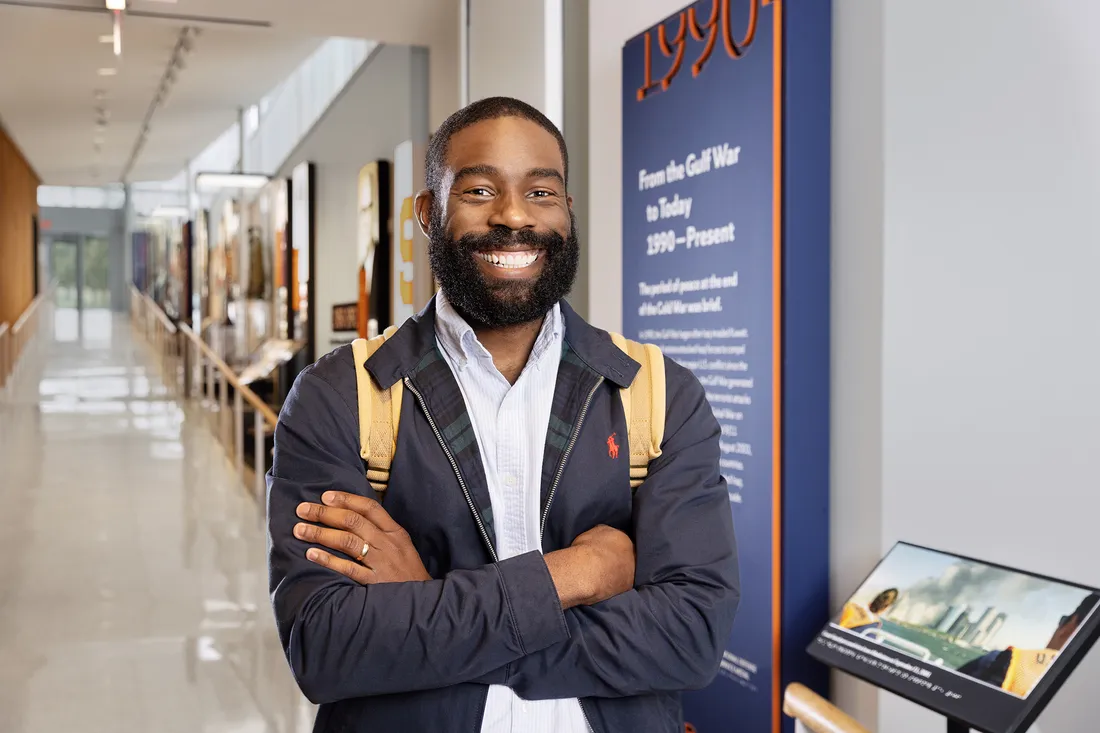
Pollard served as a nuclear engineering electronics technician while in the U.S. Navy, where he learned critical leadership and communication skills that have helped him be a more successful student.
Second Chances and New Opportunities
This wasn’t the first time Pollard wanted to attend Syracuse University. He first applied in 2010 but wasn’t admitted. For Pollard, this is his second chance. “Attending Syracuse now is a chance to prove myself and what I’m capable of doing.”
He’s starting to get into the core courses for his major and thinks he may eventually go for a master’s degree in engineering management. Pollard says he’s excited about the different types of jobs and industries that will be available to him with the electrical engineering degree. “The engineering program has a lot of resources and support for their students,” he says. The leadership and communication skills he gained in the Navy also help him be a more successful student, Pollard says.
“My communication skills from the Navy are helpful. Getting inside of a unit with such a diverse group of people, you need to learn how everyone communicates and be able to communicate with each person. It’s the same here. In a diverse community like Syracuse University, you need to learn how to communicate with traditional, veteran and military connected students,” Pollard explains.
Pollard, who lives with his wife Enesa, is involved on campus outside of class. He is treasurer of the Student Veteran Organization, which he describes as a great way to push himself out of his comfort zone, and he’s a volunteer for Big Brothers Big Sisters of America. He’s also a facilitator for some math courses, teaching pre-calculus concepts to students.
As a veteran, I thought I wouldn’t feel connected to traditional students, but that wasn’t the case. Most of my closest friends at Syracuse are traditional students. It’s amazing to have that connection with students that are many years younger than me, but I can still learn from them, and they can learn from me.
Savion Pollard ’25
And come this summer, he will be the first Syracuse University student to intern at Micron Technology in Manassas, Virginia. Micron recently announced their investment of $100 billion to build a semiconductor fabrication facility in the Syracuse area—the largest investment and facility of its kind in the United States. As an equipment engineer intern, he’ll maintain the state-of-the-art fabrication equipment, troubleshoot issues and correct deficiencies to improve production and quality.
In February, Pollard was a guest of Senate Majority Leader Chuck Schumer at the State of the Union address given by President Joe Biden L’68. Schumer invited Pollard because he represents the investment Micron has made in Central New York.
Pollard’s role is an example of how Syracuse University and Micron partnered on an internship program to specifically prepare veterans and students from underrepresented communities for positions as engineers and scientists in the semiconductor industry.
Says Pollard: “Being selected as an intern with Micron means progress for me. I joined the U.S. Navy as a 21-year-old from New York City that just wanted to get out of the city and be somebody. I wanted to inspire people and be admired, but I didn’t know how. The military helped me learn how. I think being selected as Micron’s first hire from the Central New York community is extremely inspiring.”

